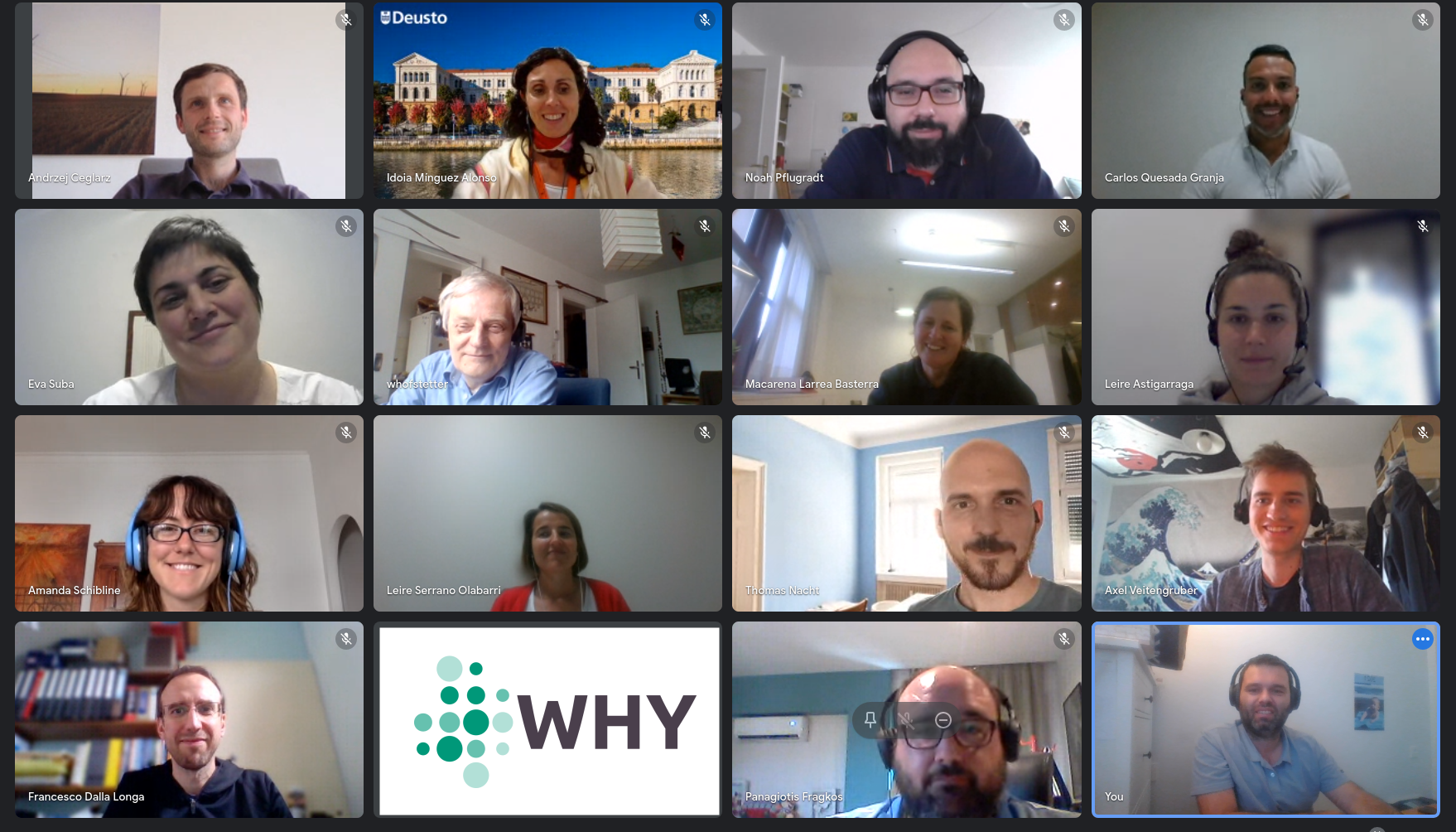25 January 2024

- The WHY project, coordinated by the University of Deusto and DeustoTech, has been funded by the European Union's Horizon 2020 programme.
- Among other things, the Orkestra Energy and Environment Lab team has collaborated in the development of a causal model to understand the factors that most influence decision-making in households with regard to energy use.
After more than three years of work, the closing event of the European project WHY in which Orkestra has collaborated together with the University of Deusto and DeustoTech took place on 19 January.
This project, funded by the European Union's Horizon 2020 programme, has aimed to revolutionise energy decision-making by developing a causal model that analyses individuals' everyday decisions on energy use. It also aims to improve understanding and predict reactions to changes in the energy market, such as tariff adjustments, new taxes, rebates and energy-efficient buildings.
Orkestra's role in the project
The Orkestra Energy and Environment Lab research team has collaborated in the project in two different areas of work.
Firstly, through an analysis of the main demand forecasting and prediction models for small consumers. To this end, an analysis of the coherence and complementarity of the model developed in the WHY project with other broader European energy system models such as PRIMES, TIMES, PROMETHEUS, as well as a benchmarking and comparative analysis of the same, has been carried out.
Secondly, the Orkestra team has collaborated in the development of a causal model, which aims to better understand which are the most predominant factors influencing household decision-making with respect to energy transition investment in four areas:
- Energy efficiency and conservation actions (Class A appliances)
- Distributed generation markets and flexibility (photovoltaic panels, batteries or remotely controllable energy assets),
- Energy renovation of the building (new glazing or thermal insulation in the façade),
- Mobility (e.g. adoption of public transport or investment in electric transport options).
Project results
One of the main outputs of the project is a policy brief for EU and national energy policy makers, including simplifying consumer savings incentives to drive energy efficiency improvements, monitoring a rolling roadmap to ensure that EU Member States meet 2030 targets for energy efficiency regulation in buildings, and further empowering energy communities.
A policy brief for local energy policy makers and public authorities to engage citizens has also been developed. These recommendations include promoting simple tariffs that provide a clear enough incentive to bring about behavioural change in consumers or adding special provisions in the tariff system for large families and people at risk of poverty to reduce the impact.
More information on why-h2020.eu












